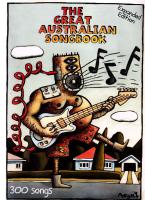SWADE - Expanded Wealth [PDF]
EXPANDED WEALTH RULES AND GUIDELINES FOR USING WEALTH AND LIFESTYLES IN YOUR GAMES BY DONAVON BAILEY - ART BY EMMALIE H
40 0 5MB
Papiere empfehlen
![SWADE - Expanded Wealth [PDF]](https://vdoc.tips/img/200x200/swade-expanded-wealth.jpg)
- Author / Uploaded
- Joao Pedro Omena Dos Santos
Datei wird geladen, bitte warten...
Zitiervorschau
EXPANDED WEALTH
RULES AND GUIDELINES FOR USING WEALTH AND LIFESTYLES IN YOUR GAMES BY DONAVON BAILEY - ART BY EMMALIE HALL
The first time I went to run a game using the Wealth system, I was excited. Less bookkeeping without sacrificing payments as a motivation? It sounds fantastic! Unfortunately, some of the first things my players wanted to do was make a huge purchase and then hit up a local casino for a night of Gambling. While the abstraction of Wealth is a fantastic addition, expensive items and smaller, more discrete transactions (such as those employed by Gambling) become more difficult to manage. This document was built to be genre‑neutral and used in any game using the Wealth rules (see Savage Worlds).
Out of Your Price Range Sometimes, an item is just too expensive to buy. For a quick way to establish an ʺupper limitʺ on purchases, assume that characters cannot make a Wealth roll on an item whose cost inflicts a Value penalty greater than their Wealth die. For example, a character with a d6 Wealth could not a empt a purchase with a penalty of –7 (greater than $20,000 in most games). Using Wealth, making Support rolls, and other bonuses to Wealth rolls cannot push a character over this limit.
Rewards
USING WEALTH Purchasing items functions just like usual with the Wealth system, but items now inflict a penalty to the characterʹs Wealth roll based on its cost and the se ingʹs Starting Funds (not the characterʹs starting funds). If an item costs up to half Starting Funds, no penalty is inflicted. For costs up to the se ingʹs Starting Funds, a –1 penalty is inflicted. Consult the Value Penalty Table below for more expensive items.
Value Penalty Table Penalty
Cost ($500 Starting Funds)
Cost ($1,000 Starting Funds)
–0
Up to $250
Up to $500
–1
Up to $500
Up to $1,000
–2
Up to $1,000
Up to $2,000
–3
Up to $2,000
Up to $5,000
–4
Up to $5,000
Up to $10,000
–5
Up to $10,000
Up to $20,000
–6
Up to $20,000
Up to $50,000
–7 –8
Up to $50,000
Up to $100,000
Up to $100,000
Up to $200,000
–9
Up to $200,000
Up to $500,000
–10
Up to $500,000
Up to $1,000,000
–11
Up to $1,000,000
Up to $2,000,000
–12
Up to $2,000,000
Up to $5,000,000
Figuring out exactly how much a Reward should be worth can also be a tricky thing to figure out, especially on the spot. If a character is offered $1,000 for a job, is that worth one Reward or three? Is that $1,000 worth more to a character with Poverty than a Rich character? To easily determine how many Rewards a payment is worth while considering the characterʹs current stash of cash, first determine if something is even worth a Reward in the first place—generally, if you wouldnʹt have to make a Wealth roll to purchase an object of the same price, the payment probably isnʹt worth a Reward, but this can be adjusted by the GM as necessary. The Value Penalty Table can be of great assistence in this regard: if the value of a payment would impose a penalty at least equal to half of a characterʹs Wealth die (–3 for d6 Wealth), itʹs probably worth two Rewards. If the Value penalty is greater than the characterʹs Wealth die, itʹs probably worth three Rewards.
This game references the Savage Worlds game system, available from Pinnacle Entertainment Group at www.peginc.com. Savage Worlds and all associated logos and trademarks are copyrights of Pinnacle Entertainment Group. Used with permission. Pinnacle makes no representation or warranty as to the quality, viability, or suitability for purpose of this product.
1
EXPANDED WEALTH Savings Characters may want to save their funds for a rainy day or big purchase. Whenever a character receives Rewards, he may choose to convert each increase in Wealth to one point of Savings instead (to a maximum of 4). Before making a Wealth roll, the character may choose to use his Savings. Every point of Savings spent grants a +1 bonus to the roll and reduces Savings accordingly. For example, if Mac has a d6 Wealth, he may spend three points of Savings to get a +3 bonus to his Wealth roll!
Gambling Gambling is difficult to use with the abstracted nature of Wealth; these simple rules should keep the feeling of high stakes for high rewards without ge ing into the minutiae. To establish the stakes, everyone agrees on a price, and players must make a Wealth roll with the usual penalties and consequences. Once the stakes are decided, all participating Wild Cards and ʺthe tableʺ (a Group roll for any Extras involved) make their Gambling rolls. Then, compare the highest Gambling total with the lowest, the second highest with the second lowest, etc. In each case, if the winner scored a success, he neither gains or loses Wealth; with a raise, his Wealth increases by one step and the loserʹs Wealth decreases by one. If thereʹs an odd many left in the middle, he breaks even and restores any Wealth lost. High and Low Stakes: When determining the stakes, if the Wealth Penalty is at least one less than half the characterʹs Wealth die (e.g. –2 for Wealth d6, –3 for Wealth d8, etc.), increase the characterʹs winnings by one step. If the Wealth Penalty is equal to two less than the characterʹs Wealth (e.g. –4 for Wealth d6, –6 for Wealth d8, etc.) or higher, his winnings increase by two steps. If the stakes would normally not incur a Wealth roll, the character does not need to roll Wealth, but he cannot gain any either—itʹs just a friendly game. Example: Mac sits down to gample at a high stakes poker table. His Wealth is only d6, but the buy‑in is $1,000. To play, he makes a Wealth roll at –2, but only scores a success and decreases his Wealth die. However, he rolls a 16 on Gambling, the highest at the table! The lowest roll was a measly 5, so Mac increases his Wealth by two steps, leaving the table with a profit.
LIFESTYLES Lifestyles are an abstract system that can be used to emphasize how a character lives from month‑to‑month, and how that lifestyle interacts with the Wealth system. These rules are optional, and the other systems here listed for Wealth function just fine without these rules. If Lifestyles are in play, ignore the rules for restoring Wealth levels to ʺnormalʺ over time in Savage Worlds... that aspect is handled by this system instead.
Default Wealth and Minimum Wealth There are a few different kinds of ʺWealthʺ that this section makes reference to. Default Wealth is a characterʹs Wealth Die without any Rewards or expenditures considered—this is generally a d6 for most characters and is modified by Poverty, Rich, and Filth Rich as noted in Savage Worlds. Minimum Wealth, on the other hand, is a die type associated with each lifestyle, similar to Minimum Strength for armor and weapons—every month, compare the characterʹs Default Wealth to his lifestyleʹs Min. Wealth, and apply the following effects. • Lower: If Default Wealth is less than Min. Wealth, the character must make a Wealth roll with a –1 penalty per die step difference. A success or raise have the usual effects, but a failed roll decreases the characterʹs Wealth by two steps. A Critical Failure means he goes broke regardless of his Wealth! • Equal: If the die types are equal, the character is more or less breaking even and doesnʹt need to make a Wealth roll. If her current Wealth is lower than her Default Wealth, her Wealth increases one step. • Greater: If Default Wealth is greater than Min. Wealth, the characterʹs Wealth increases two die types, to a maximum of the characterʹs usual Default.
2
EXPANDED WEALTH Lifestyle Tiers When using these rules, characters are considered to live within their means (the lifestyle that matches their default Wealth), but they may choose to change their lifestyle if needed—though once a changed, characters must wait at least a month before changing again. Changing lifestyles can come with various roleplaying boons or detriments, such as being allowed to access high‑ class areas of events, or being overlooked or avoided by average citizens, as well as situational penalties to Persuasion (not bonuses); any an all effects are decided by the GM based on the social circumstances the characters find themselves in. Note that characters who go broke can only use the Broke lifestyle (see below) until his Wealth is restored to at least a d4 through Rewards. Broke: The character is dead broke and can only afford basic food, water, and shelter—if that. They are dirty, unkempt, likely hungry, and often come across as untrustworthy. If a character is living this lifestyle, his funds do not increase every month as usual—he must switch to a different lifestyle (and must have at least a d4 Wealth to do so). Poor: Poor characters are able to afford the basics and not much else. Their food tends to be unhealthy and their clothes cheaply made and easy to acquire. While generally clean, hygiene is not a focus and characters can be perceived as a bit grimy. Min. Wealth d4. Average: The character is able to live a relatively normal lifestyle—reasonable lodgings, decent food, good hygiene, and can make one or two big purchases when needed. Min. Wealth d6. Rich: This character lives large, easily able to afford expensive meals, high‑end clothing or fashion, and impressive lodgings. Theyʹre almost certain to have a personal vehicle or mount, if not multiple, and tend to go to more expensive events fairly frequently, like banquets or good seats in a sports match. Min. Wealth d8. Filthy Rich: Filthy Rich characters truly experience the finer things in life, living in beautiful penthouses, dining at esteemed restaurants, and using the best designer clothing, glasses, watches, etc. These characters tend to have an easier time making their way into the good graces of similarly wealthy, famous, or important individuals such as celebrities or politicians. Min. Wealth d10.
Obscenely Rich: For characters where Filthy Rich isnʹt quite enough, an Obscenely Rich lifestyle allows everything from before but turned up to 11 and relishing in excess. Extravagant parties, buying out whole venues... itʹs unsustainable, but while it lasts the character is on top of the world. Min. Wealth d12.
Greedy Hindrance Those who measure their worth in wealth tend not to just sit on their money: they like to invest and embellish in the funds theyʹve rightfully earned. While not required, talk to your players with the Greedy Hindrance and encourage them to always live the best lifestyle they can based on their Wealth. A greedy character who got a Reward and has a d10 Wealth may want to purchase a nice car or rent out much nicer rooms than they need. Why? Because itʹs nice and they earned it. This is dependant on the source of a characterʹs greed, of course. Someone who is ʺgreedyʺ because theyʹre trying to earn funds for their daughterʹs surgery has a legitimate reason to hold on to whatever Rewards she can.
Lifestyle Bonuses A common question will be ʺwhy wouldnʹt playing a higher lifestyle grant bonuses to Persuasion rolls?ʺ Itʹs a good question, and since lower status can impose penalties to oneʹs rolls, why wouldnʹt higher status invoke the opposite? The main reason is even a measly +1 is a huge bonus in Savage Worlds—one thatʹs too large to be given for a full game month and a single Wealth roll, or by default for characters with Rich or Filthy Rich. In lieu of mechanical bonuses or modifiers, what else can you give players who want to live above their means? Something I heavily encourage is the idea of ʺlateral bonusesʺ—if vertical bonuses are +1s and +2s, lateral bonuses are boons like being on the list for big parties, having a high‑end apartment or lodgings to impress rich guests, and having the chance for NPCs to start at higher Reaction levels than they might otherwise... there are a lot of dials you can turn in Savage Worlds, you just need a li le imagination!
3









